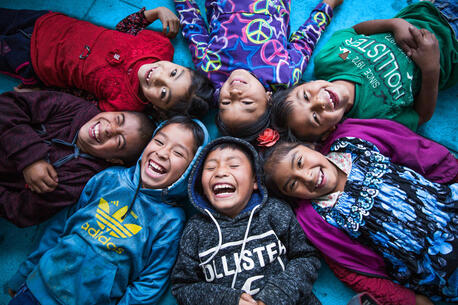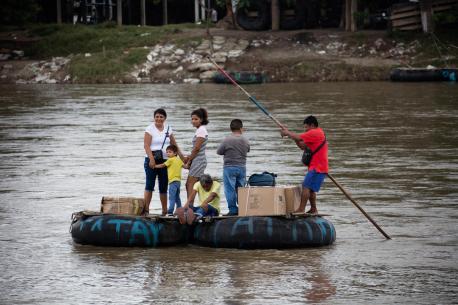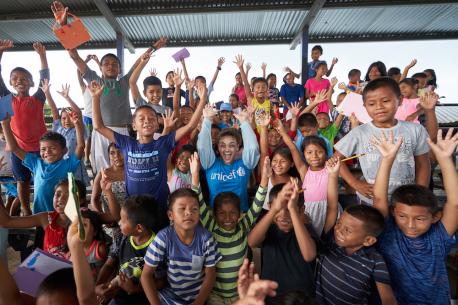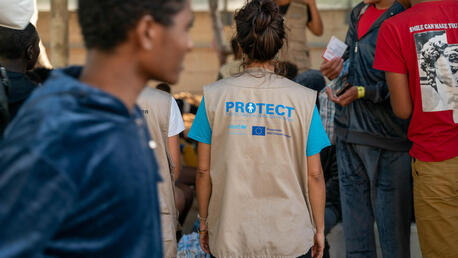
Protection — for Every Child Migrant, Every Step of Their Journey
Globally, there are more people on the move than ever before — and many of them are children. UNICEF works along the world’s most dangerous migration routes and beyond to protect migrating children, their rights and their inclusion.
As conflicts, human rights violations, climate change impacts and other instabilities continue to push people from their homes, the number of forcibly displaced child refugees and asylum seekers worldwide is on the rise. Between 2010 and 2022, the number of children on the move more than doubled from around 20.6 million to 43.3 million. In May 2022, the United Nations High Commissioner for Refugees (UNHCR) announced that, driven by the escalation of war in Ukraine and other global emergencies, the number of migrants — children and adults — had exceeded 100 million for the first time on record.
In October 2023, the International Organization for Migration (IOM) announced that Sudan is now facing the world’s largest internal displacement crisis: more than 7 million people — including 4.5 million since mid-April 2023 — have abandoned their homes in Sudan in search of safety amid ongoing armed violence. Over 1.2 million have fled to neighboring countries.
The numbers are startling, but it’s important to remember that behind every statistic is a person with a story, often of someone forced to leave home due to harrowing circumstances, and to then navigate hazardous migration routes in a journey that requires remarkable strength and resilience.
Migrants contribute meaningfully to society — and foster innovation and cultural diversity to propel global progress
The unique perspectives and experiences of migrants are a reminder of the value of embracing diversity and understanding to dissolve barriers and build better, more equitable communities — for every child, for us all.
These are some of their stories.
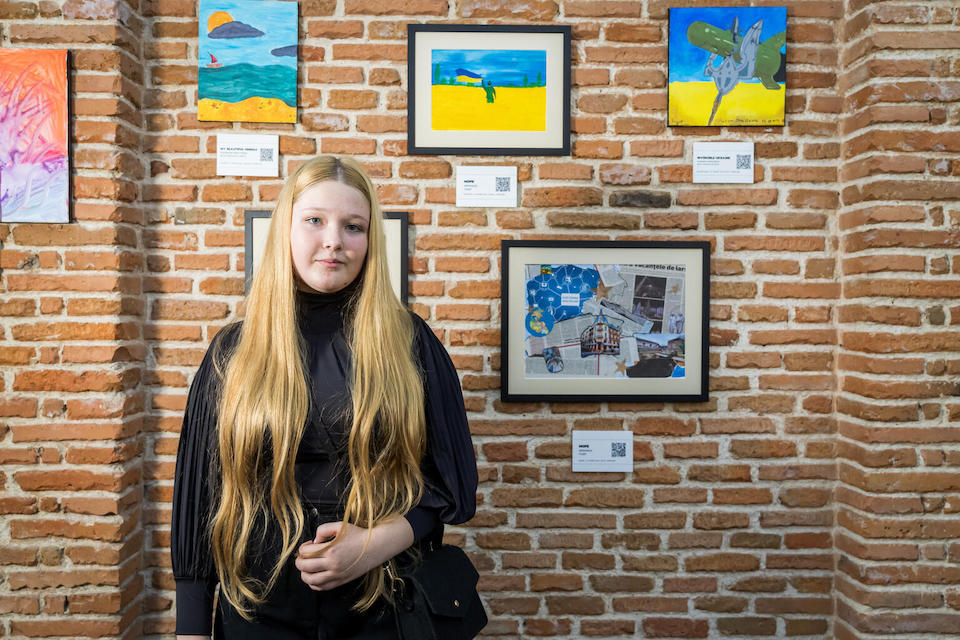
Fifteen-year-old Patrizia, above, was forced to leave her home in Ukraine when the war escalated. “I have always liked to create, to paint,” she says. “When I came to Romania, I started drawing my memories to show people how proud I am of my beautiful country, Ukraine. I also wanted to help the people who fled the war remember the beautiful things they left back in Ukraine.”
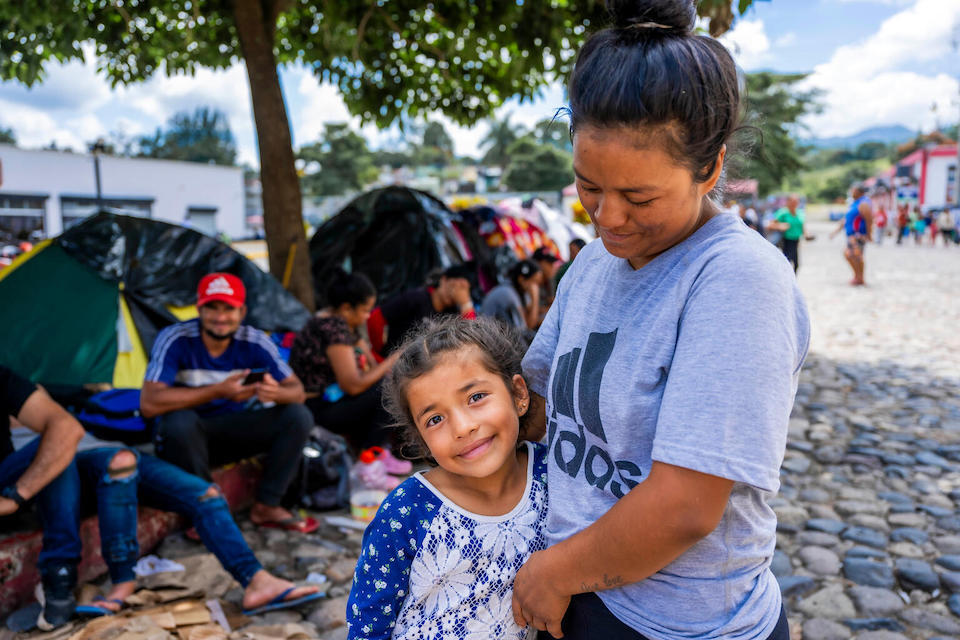
Elizabeth and her daughter arrived at a camp in Esquipulas, Guatemala, after making the dangerous trek through the Darién jungle. “It was very hard,” Elizabeth says. “My husband was attacked there. They shot him. We went through very hard things. We didn't have anything to eat.”
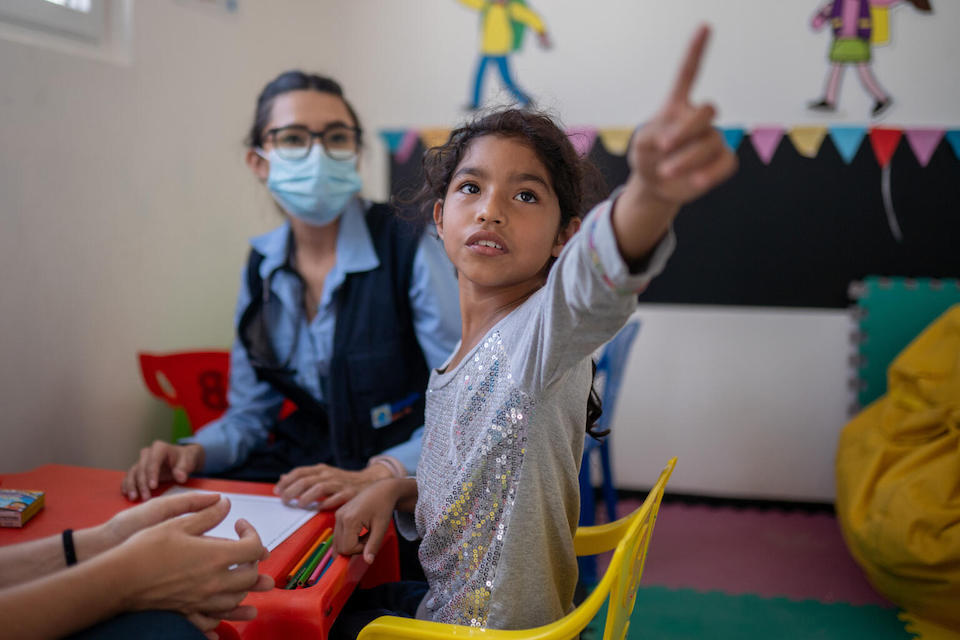
At a UNICEF-supported child protection center in Guatemala, 8-year-old Ángela, from Venezuela, received psychosocial, health and hygiene support. “I played and made friends with a lot of people who are here right now,” she said. “I’m very happy to be here, [but] I know I’ll move forward.”
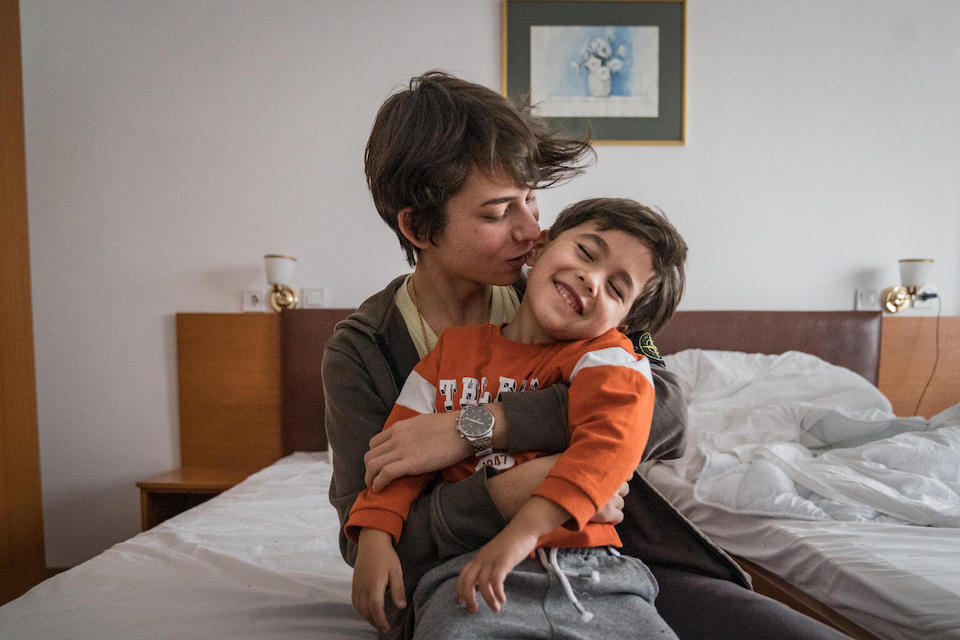
Timor, 15, and his little brother were forced to flee Odesa, Ukraine, with their mother when the war came to their doorstep in 2022. By the end of December 2022, 7.9 million Ukrainian refugees had been recorded across Europe.
UNICEF works to support every child on the move, every step of their journey. UNICEF USA is firm in its belief that a child is a child — no matter who they are, where they come from or where they may go. Along the world’s most dangerous migration routes and beyond, UNICEF works to support children and families on the move by providing lifesaving supplies, child protection services and more — and also works to address the root causes of
migration, including conflict and war, climate change and child poverty.
Migrants and their rights are often especially vulnerable; hate and discrimination can increase the risks they face during their journeys and, oftentimes, when they’ve reached their destinations.
To meaningfully support children and families on the move, UNICEF confronts hate and discrimination, including racism and xenophobia, and leads with information and radical compassion. Through education and advocacy at the individual, organizational and governmental levels, child migrants' rights and protections can be upheld, regardless of their origin or status.
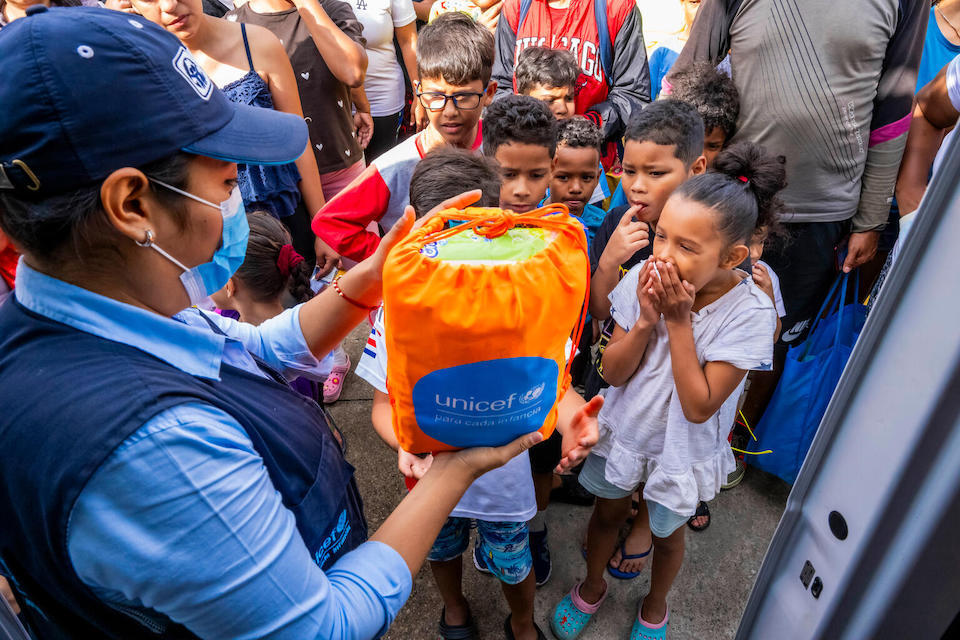
Children and families on the move are especially vulnerable to health and hygiene challenges. To support them, UNICEF and partners regularly distribute hygiene kits and provide health and medical services at key migration points and in the aftermath of natural disasters or emergencies. Hygiene kits can support a family of four with soap, feminine hygiene products and more to protect children and their families from illness and uphold their dignity.
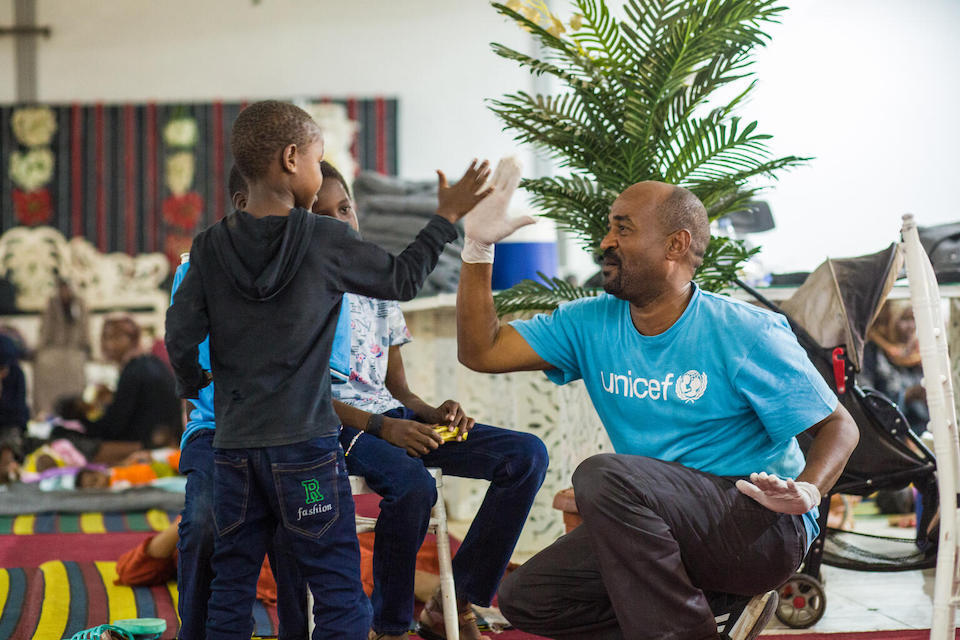
Every child has the right to health, education, protection and respect
Migrating children are at heightened risk of separation, violence, abuse and trafficking. UNICEF supports child protection services along migration routes and in vulnerable communities around the world. These services include birth registration and family reunification efforts, as well as Child-Friendly Spaces and Temporary Learning Centers, where children and families displaced from their homes can access psychosocial, health, educational and recreational resources from trained staff.
In addition to advocating for and upholding the rights and protections of children on the move, UNICEF works to improve their inclusion through advocacy and innovative programs like UNICEF’s Youth on the Move Fellowship, which places young leaders in temporary, paid positions in UNICEF’s offices around the world.
UNICEF also works with governments and supporters to urge the protection and prioritization of child migrants’ rights and well-being, based on the belief that every child has the right to survive and thrive. UNICEF's Humanitarian Action for Children (HAC) 2024 details plans to shape safer, brighter futures for all children through local partnerships — and explains why flexible donor support is vital.
Children in the U.S. and beyond need your help
Children in the U.S. and across the globe are facing unprecedented challenges — and they need our support now more than ever.
Staying informed about the issues affecting young migrants and displaced children is the first step toward making a positive change. Explore UNICEF USA’s website and social media accounts regularly for information and opportunities to take meaningful action for children around the world.
Next, share the information you learn with others. By engaging in meaningful conversations with your community, you can raise awareness, build a deeper understanding of these crucial issues and foster compassion.
Finally, take action. Learn how you can call on your federal legislators today to make a difference.
